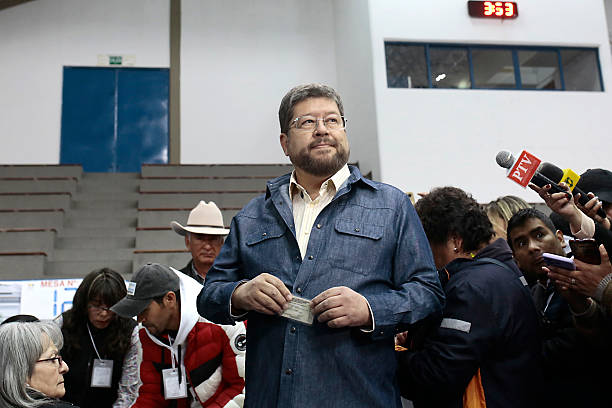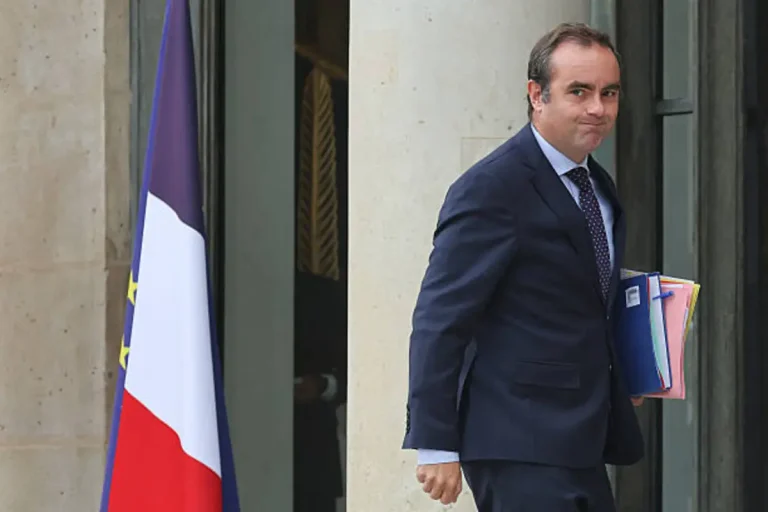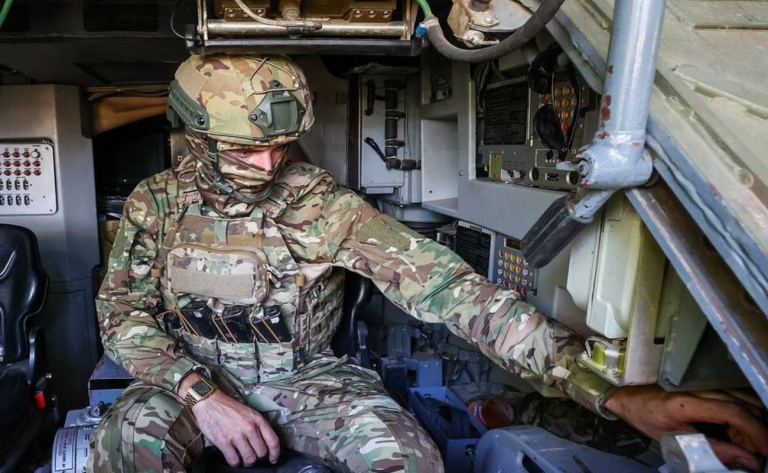
Presidential candidate Samuel Doria Medina votes at Colegio Franco Boliviano amid Bolivia’s economic, social crisis. Gaston Brito Miserocchi/Getty Images
Bolivia 2025 Presidential Election Faces MAS Internal Turmoil
The MAS party, founded by Evo Morales, has dominated Bolivian politics since 2006. Recent years, however, have seen growing tensions between Morales and President Luis Arce.
The Constitutional Court ruled Morales ineligible, citing term limits as a safeguard against prolonged political control. President Arce opted not to seek re-election, endorsing Minister of Government Eduardo del Castillo as MAS candidate.
Early polling shows del Castillo struggling to gain voter support, reflecting internal party divisions and public dissatisfaction with the current administration.
Right-Wing Candidates Gain Ground in Bolivia 2025 Presidential Election
Opposition parties have consolidated their efforts. Businessman Samuel Doria Medina of the National Unity party and former President Jorge “Tuto” Quiroga of the Libre party lead polling figures, advocating for market reforms and economic stabilization.
Doria Medina has emphasized foreign investment and strategic management of Bolivia’s lithium resources, while Quiroga focuses on fiscal discipline and stronger international partnerships.
Both candidates have leveraged public concern over inflation, fuel shortages, and declining gas revenues, resonating with voters seeking a change in leadership direction. According to recent reporting, their platforms have gained momentum in key regions.
Evo Morales Campaigns for ‘Nulo’ Vote
Despite his disqualification, Evo Morales remains politically active, advocating for supporters to cast a “Nulo” (invalid) vote as a protest against the exclusion of his candidacy. The campaign has heightened awareness of the null vote option, though its impact on election outcomes remains uncertain.
Analysts note that Morales’ influence could affect voter turnout and the MAS party’s ability to maintain its legal standing.
Voter Uncertainty Could Trigger Runoff
With approximately 30% of voters still undecided, the election outcome is unpredictable. Bolivia’s electoral law requires a runoff if no candidate achieves over 50% of the vote or a 10-percentage-point lead over the nearest rival. The second round, if required, is scheduled for October 19.
Additionally, the MAS party risks losing its legal status if it fails to meet the minimum 3% vote threshold, which could significantly alter the nation’s political landscape.
Observers highlight that the election represents a critical juncture for Bolivia’s governance and economic policy. International coverage notes the high stakes of the vote for both domestic stability and regional trends.
Implications of the Bolivia 2025 Presidential Election
The 2025 election marks a potential turning point in Bolivian politics. A transition away from MAS rule would signify a major shift in Latin America’s political landscape.
The incoming administration will face substantial economic and social challenges, including managing inflation, resource allocation, and public expectations.
Also Read: Russia to Launch Active Drone Deliveries Within Two to Three Years Says Transport Minister
Global observers emphasize the need for transparent and orderly election processes, given the potential impact on Bolivia’s internal governance and its relationships with international partners.

